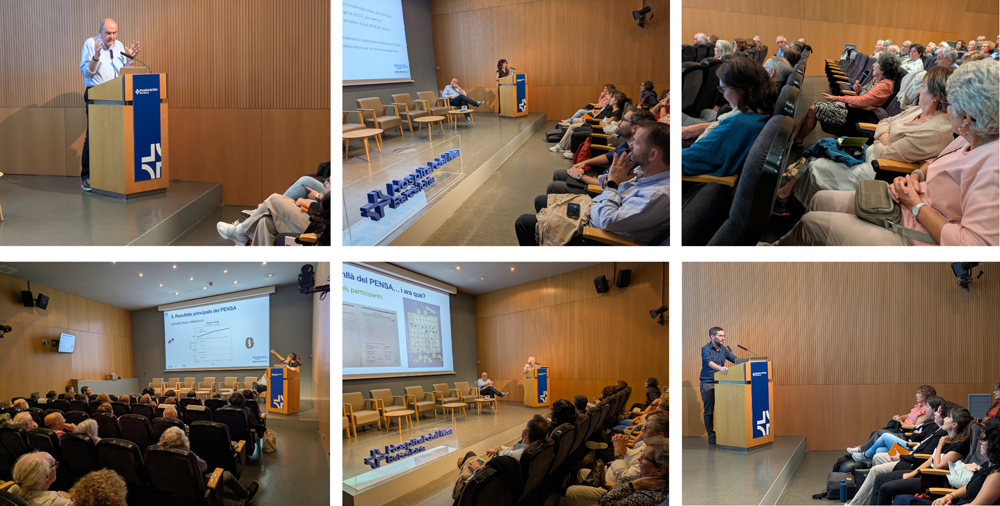
15/10/2025 - Events
The project, conducted jointly with the Barcelonaβeta Research Center and whose results were published in The Journal of Prevention of Alzheimer's Disease, involved around one hundred volunteers who were followed for more than a year. To mark the end of five years of collaboration-beginning with the recruitment of participants-the volunteers took part in an event where the study's findings were presented. It was a way to return the results to those who made the research possible.
Following one hundred people for over a year, sharing experiences, and achieving a goal-solid results published in a high-impact journal-leaves a mark. Bonds are formed between volunteers and researchers, but also among the volunteers themselves. This has been the case in the PENSA study, carried out by the Integrated Pharmacology and Systems Neuroscience Research Group at the Hospital del Mar Research Institute and the Barcelonaβeta Research Center, part of the Pasqual Maragall Foundation.
To celebrate its success, on October 14th, a closing event was held in the Josep Marull Hall. It was an opportunity to present the study's results, led by Dr. Rafael de la Torre, and to share updates on advances in Alzheimer's disease biomarkers, presented by Dr. Marc Suárez-Calvet. It was also a moment to pay tribute to the main protagonists-the volunteers who participated in the study.
Above all, it was a way to emphasize that PENSA is not coming to an end. Thanks to the results obtained, a new phase is beginning with four new projects: the continued follow-up of the cohort (PENSA+), new trials combining the lifestyle program with EGCG and metabolic strategies, initiatives to include underrepresented groups, and the deployment of VITA (XPRIZE Healthspan). These initiatives build on the foundations laid by the study and expand its impact.
Combining diet, physical exercise, cognitive training, and a green tea compound against dementia
The PENSA study has shown that this combination can provide sustained cognitive benefits for people at high risk of developing Alzheimer's disease. Over the course of a year, more than one hundred participants were divided into groups according to different types of interventions. The group that showed the best results combined a lifestyle improvement program with epigallocatechin gallate (EGCG), a compound found in green tea. Nearly half of the participants showed cognitive improvement, and these benefits persisted even after the treatment ended.

© Institut Hospital del Mar
d'Investigacions MèdiquesLegal Notice and Privacy Policy | Cookie Policy | Site Index | Accessibility | Find Us | Contact